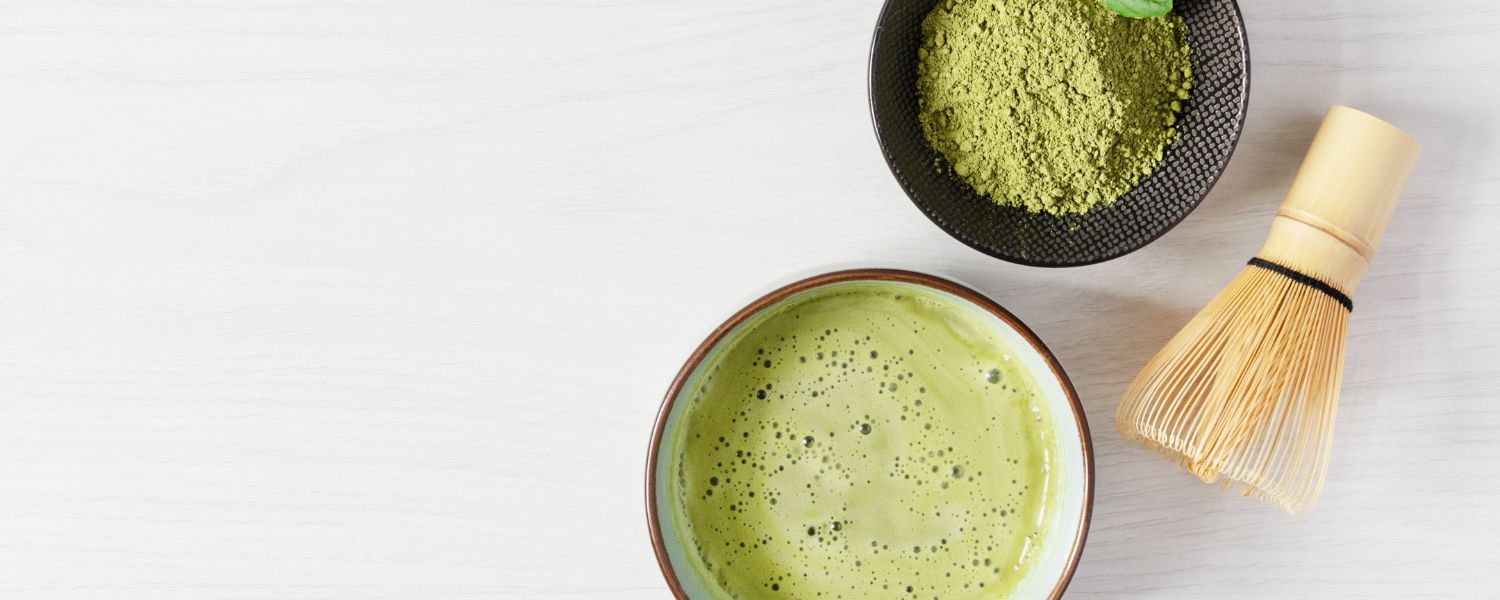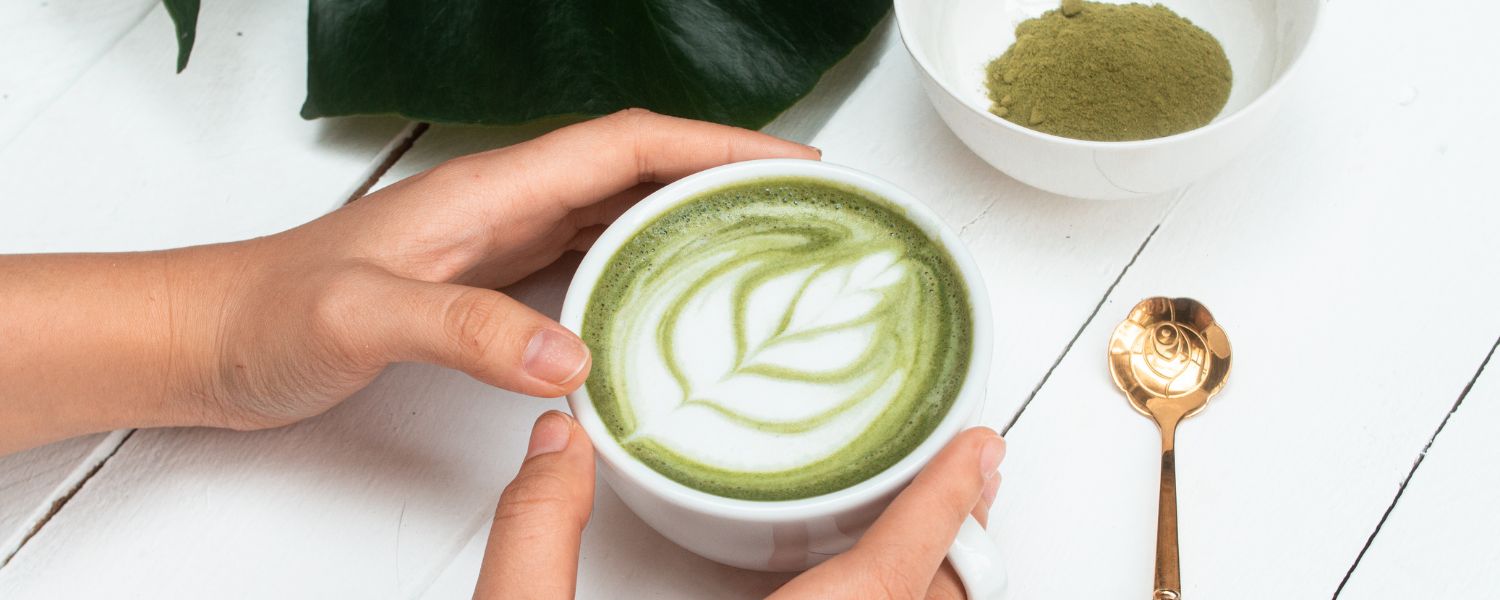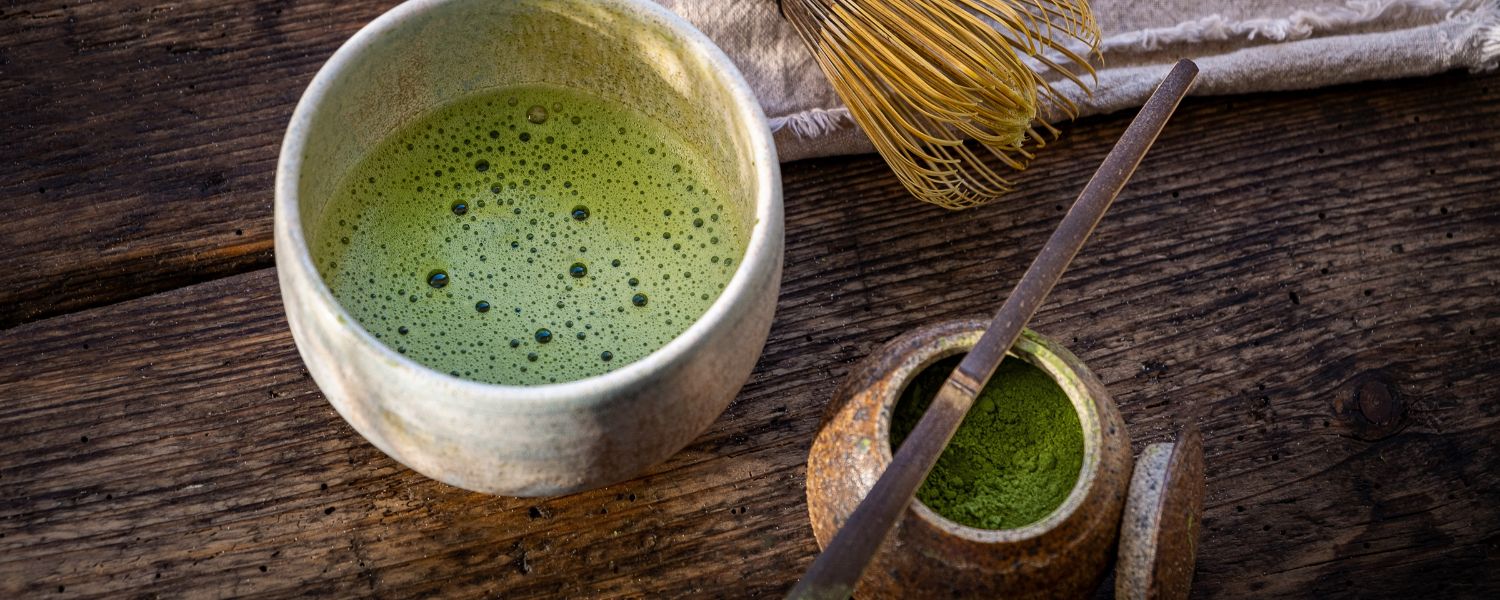Matcha lattes are a staple item at every hip coffee shop in your area, and you’ve probably tried it, or at least heard someone describe the drink in full detail at least once.
However, there is a lot more to matcha than just its picturesque green color, and the age-old drink carries a set of benefits with it, starting with an energy boost and a number of other beneficial factors.
While some enjoy matcha for its unique flavor and soothing feeling it gives off when you drink it, others actually consume it to help preserve their health, and that’s the topic we’ll be discussing today.
Keep on reading and find out whether you’ll be drinking matcha to post it on your socials or to actually do your body a favor.
What is matcha?

Unlike standard green tea, matcha is made from the entire leaf of the Camellia plant, with the other difference being that it comes in a fine, powdered form, rather than dried-up leaves.
You may have already heard of the Camellia plant from the other teas it’s used for, such as black, white, green, and even the Japanese Oolong tea.
Camellia has a long history of being used in traditional practices in Asia, and its umami taste paired with antioxidant content has made its derivative teas into some of the more popular drinks around the globe.
The fact that it grows in the shade is what gives it the bitter, astringent taste as well as the amino acids and proteins that help our body function properly.
No matter how you look at it, Matcha and adjacent teas are all packed with health benefits, with the only real downside being their high caffeine content, but if it weren’t for that, a lot of us probably wouldn’t be drinking it as much anyways.
The benefits

Camellia plant teas have a variety of uses, and while they’re often used in traditional healing practices in China and Japan, they’ve also proven to be incredibly helpful when it comes to speeding up healing processes.
The first thing that many people bring up is matcha’s ability to help maintain and improve cardiovascular health, largely due to its high EGCG content.
Research on EGCG found that the chemical comes with a number of therapeutic effects, including those that can help preserve the human heart and keep it beating at a steady pace even in the later stages of life.
Apart from this, matcha is also packed with antioxidants, which help remove toxins from the body and reduce the stress caused by oxidation, a naturally occurring process that happens in our bodies from the moment we’re born, up until we’re dead.
Even though black tea has been found to dye teeth into a brownish hue, matcha’s positive effects are that it reduces inflammation in the body and even helps prevent tooth decay.
Brewing matcha

Even though it’s commonly known as a beverage that’s consumed warm, matcha is incredibly adaptable, and you can even include the powder in a variety of dishes, whether they’re sweet or savory.
Matcha lattes and ice creams have taken the world by storm, but few actually talk about other meals that include tea, ranging from pancakes to even noodles, and best of all, you don’t even have to cook a proper meal to include it in your diet.
By simply sprinkling some matcha powder into your oatmeal or yogurt, you receive a burst of flavor and energy that will last for hours.
On top of this, making matcha is incredibly simple, and some even consider the process to be therapeutic, as it helps them slow down, relax and enjoy making their favorite tea.
In fact, it can even be considered an art form, seeing as matcha brewed at different temperatures can have a significantly diverse flavor profile, despite being the same tea blend.
A standard recipe calls for 2 grams of matcha and 2 ounces of warm or hot water, and you’ll want to slowly add the water to prevent the powder from clumping, all the while whisking away at the mixture.
The result will be a creamy, frothy mixture with a refreshing taste that you won’t be able to get enough of.
The downsides

Much like any caffeinated drink, matcha can become addictive, and it’s important to control your intake at all times if you want to avoid any of the health risks it may pose.
Despite being beneficial for your body, high amounts of matcha can lead to insomnia, jitters, and even social anxiety followed by increased heart rate, nausea, and persisting headaches.
Keep in mind that this is only tied to extreme usage of the tea, and won’t happen to you if you drink it responsibly, so long as your body isn’t overly sensitive to caffeine.
Some other side effects may include constipation and liver damage, but this is only in extreme cases.
